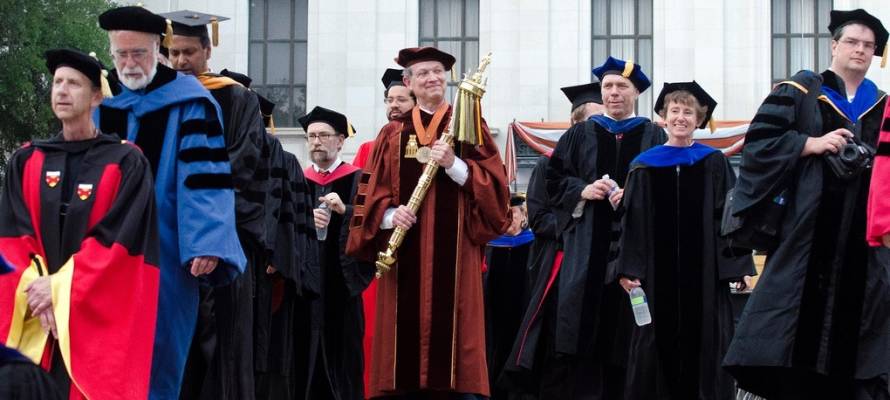Several members of the American Studies Association (ASA) announced Wednesday that they are suing their own academic association for its boycott of Israel, arguing that the boycott violates a District of Columbia (DC) law that applies to non-profit organizations.
“Until a handful of zealots appropriated our learned society, the ASA was the leading organization for the study of American culture,” said one of the plaintiffs, Professor Simon Bronner. “Yet in 2013, a handful of anti-Israel Boycott, Divestment and Sanctions (BDS) activists aggressively steered the ASA to an organization of social change pushing a narrow political agenda.”
The membership of the ASA, the oldest and largest association devoted to the interdisciplinary study of American culture and history, in 2013 voted to endorse the ASA’s participation in a boycott of Israeli academic institutions. The vote had attracted the largest number of participants in the 5,000-member organization’s history, but even while 66 percent of those who voted supported the boycott, there were only 828 total pro-boycott votes—less than 20 percent of the ASA’s membership.
“Academic associations should think twice before abusing their missions and betraying the lawful purposes for which they were established in favor of the personal political agendas of their noisiest and most politicized activist members,” said Kenneth L. Marcus, president of the Louis D. Brandeis Center for Human Rights Under Law (LDB) and one of the attorneys on the case. LDB assembled the team of lawyers to represent the American Studies professors.
The lawsuit’s plaintiffs say that at the time of the boycott, the ASA’s constitution stated that “the object of the association [is] the promotion of the study of American culture through the encouragement of research, teaching, publication…about American culture in all its diversity and complexity.” Therefore, the boycott of Israel was outside the scope of the constitution and antithetical to the association’s stated goal of promoting knowledge, the plaintiffs argue.
The ASA’s constitution also states that the association’s goal is “the strengthening of relations among persons and institutions in this country and abroad devoted to such studies,” which the plaintiffs say is also the exact opposite of what the boycott of Israel aims to achieve.
Further, as a tax-exempt non-profit, the ASA reports documents annually to the Internal Revenue Service (IRS). In those IRS documents, the ASA describes its mission as “the nation’s oldest and largest association devoted to the interdisciplinary study of American culture and history,” with the specific purpose of “advancing the study of American culture.”
Prof. Bronner is joined in the lawsuit by three other plaintiffs: Professors Michael Rockland, Michael Barton, and Charles Kupfer. The four plaintiffs say they have unsuccessfully tried to address the issue of the Israel boycott directly with the ASA numerous times since 2013, and chose to now sue the association as a last resort.
“This appears to be a clear example of a small group misappropriating assets raised for an agreed-upon purpose and illegally using the organization to advance a completely separate and personal agenda,” said University of California, Berkeley Law School Professor Steven Davidoff Solomon, a corporate law expert who advised the litigation group representing the plaintiffs.
Northwestern University Pritzker Law School Professor Eugene Kontorovich, a legal expert who also advised the litigation group, added that “to be clear, this is not about silencing or stopping criticism of Israel, or in any way discouraging it. It is about non-profit corporations abiding by their own rules.”
By: JNS.org
